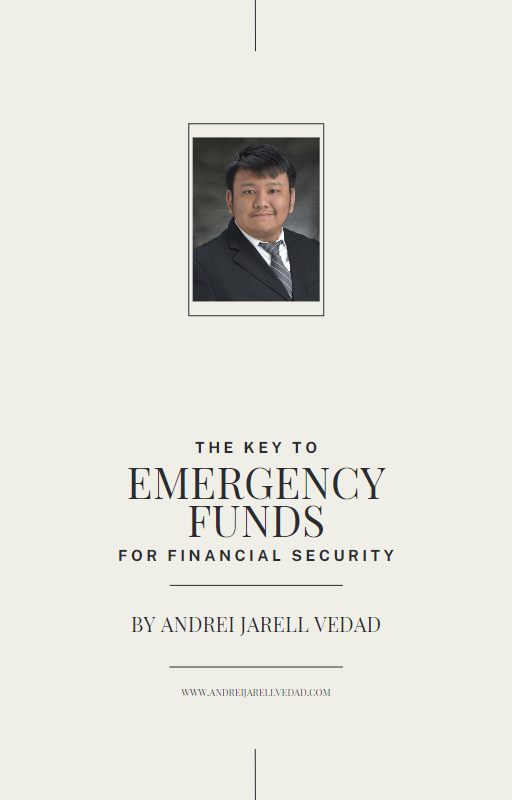
Table of Contents
Introduction
Saving money is an important aspect of financial management that everyone should prioritize. Whether it’s for emergencies, future investments, or achieving financial freedom, setting aside a portion of your income can help you achieve your financial goals. However, many people struggle with saving money, especially with the rising cost of living in the Philippines.
Fortunately, there are smart habits that you can develop to help them save money and improve your financial well-being. In this blog post, we’ll be discussing some of these habits and providing tips on how you can incorporate them into your daily routine. By implementing these habits, you can start building a stronger financial foundation and working towards a brighter future. So without further ado, let’s dive into the smart habits that can help you save money.
Track Your Expenses
One of the most important steps in saving money is tracking your expenses. By knowing exactly where your money is going, you can identify areas where you can cut back and save more. Tracking your expenses also helps you to stay accountable to your budget and financial goals.
To effectively track your expenses, start by creating a budget and keeping a record of all your purchases and expenses. You can use a spreadsheet, a budgeting app, or even a simple pen and paper to record your expenses. Be sure to categorize your expenses, so you can easily see where your money is going.
Here are some tips for tracking your expenses effectively:
- Be consistent: Make it a habit to track your expenses every day, so you don’t miss anything.
- Be thorough: Don’t overlook small purchases, as they can add up over time.
- Use technology: There are many budgeting apps available that can help you track your expenses automatically. Some popular options include Mint, Empower (previously Personal Capital), and YNAB.
By tracking your expenses, you can get a better understanding of your spending habits and make adjustments to save more money. With a clear picture of your finances, you can start making smarter financial decisions and achieve your savings goals.
I have a printable income and expenses tracker for you to use if you’re interested. Check it out on my Buy Me A Coffee page.
Andrei Jarell Vedad
Set Financial Goals
Setting financial goals is an important step in saving money and achieving financial stability. Without clear goals, it can be difficult to stay motivated and make progress towards your financial objectives. By setting specific goals, you can create a roadmap for your financial future and stay focused on achieving them.
Here are some reasons why setting financial goals is important:
- Provides direction: Having clear financial goals gives you a sense of direction and purpose in your financial life.
- Increases motivation: Knowing what you’re working towards can be a powerful motivator to stay on track and make progress towards your goals.
- Helps prioritize spending: With clear financial goals, you can make informed decisions about how to allocate your money and prioritize spending.
Examples of financial goals include:
- Building an emergency fund
- Saving for a down payment on a house
- Paying off credit card debt
- Investing for retirement
- Saving for a child’s education
Here are some tips for setting and achieving financial goals:
- Be specific: Set specific, measurable goals that are realistic and achievable within a specific timeframe.
- Break it down: Break down your larger goals into smaller, more manageable milestones to track your progress.
- Review and adjust regularly: Regularly review your progress towards your goals and make adjustments as necessary to stay on track.
By setting clear financial goals, you can take control of your finances and work towards a brighter financial future.
Create and Stick to a Budget
Creating and sticking to a budget is a crucial component of saving money and achieving financial goals. A budget is a plan for your spending that helps you manage your money effectively, and stay within your means. With a budget, you can prioritize your spending and make informed decisions about how to allocate your money towards your goals.
Here’s why budgeting is important:
- Provides financial clarity: A budget gives you a clear picture of your income and expenses, so you can see where your money is going and make adjustments as needed.
- Helps you reach your goals: By allocating your money towards specific goals, you can make progress towards your financial objectives.
- Reduces stress: With a budget in place, you can avoid the stress of overspending or unexpected bills, and have peace of mind knowing your finances are under control.
Here are some tips for creating a budget:
- Start with your income: Begin by identifying your income sources and the amount of money you have coming in each month.
- Track your expenses: Use the information from tracking your expenses to determine where you can cut back and how much you can realistically allocate to each category of spending.
- Prioritize your spending: Allocate your money towards your most important expenses first, such as bills, groceries, and savings.
Here are some strategies for sticking to your budget:
- Set reminders: Use reminders and notifications to stay on track with your budget goals.
- Plan ahead: Plan your spending in advance and avoid making impulsive purchases.
- Adjust as necessary: Review your budget regularly and adjust it as needed to make sure it reflects your changing financial situation.
By creating and sticking to a budget, you can take control of your finances and achieve your financial goals.
I wrote a blog about making a budget, be sure to check it out!
Andrei Jarell Vedad
Minimize Impulse Purchases
Impulse purchases are purchases that are made without much forethought or planning. They are often unplanned and motivated by emotions such as excitement, boredom, or stress. While impulse purchases may provide short-term gratification, they can have a significant impact on your savings over time.
Here’s why minimizing impulse purchases is important:
- Saves money: By avoiding unnecessary purchases, you can save money and put it towards your financial goals.
- Reduces clutter: Impulse purchases often lead to clutter in your home, which can be stressful and overwhelming.
- Helps prioritize spending: By being intentional about your purchases, you can allocate your money towards things that are important to you and your financial goals.
Here are some tips for minimizing impulse purchases:
- Wait it out: When you feel the urge to make an impulse purchase, wait 24 hours before making the purchase. This will give you time to evaluate whether it’s a necessary purchase or just an impulse.
- Stick to a shopping list: Before going shopping, make a list of what you need to buy and stick to it. Avoid browsing or wandering around the store, as this can lead to impulse purchases.
- Use cash: Use cash instead of credit cards for purchases. When you see the actual money leaving your wallet, you may be less likely to make an impulse purchase.
By minimizing impulse purchases, you can save money and stay on track towards your financial goals.
Cook Your Own Meals
Eating out can be convenient and enjoyable, but it can also be expensive and unhealthy. Cooking your own meals at home is a smart habit that can save you money, help you eat healthier, and give you control over the ingredients in your food.
Here’s why cooking your own meals is important:
- Saves money: Cooking your own meals is generally less expensive than eating out. You can buy ingredients in bulk and use them for multiple meals, which can reduce your overall food costs.
- Healthier options: When you cook your own meals, you have control over the ingredients you use, which can help you make healthier choices and avoid processed and high-calorie foods.
- Fun and rewarding: Cooking can be a fun and rewarding activity that allows you to be creative and experiment with new flavors and cuisines.
Here are some tips for meal planning and cooking at home:
- Plan your meals: Plan your meals for the week in advance, so you know what ingredients you need and can avoid last-minute trips to the grocery store.
- Batch cook: Cook in bulk and freeze leftovers for easy meals during the week.
- Use affordable ingredients: Look for affordable ingredients such as beans, lentils, and frozen vegetables that can be used in a variety of recipes.
- Experiment with spices and herbs: Use spices and herbs to add flavor to your meals instead of relying on high-calorie sauces and dressings.
Here are some recommended resources for finding affordable and healthy meal ideas:
By cooking your own meals at home, you can save money, eat healthier, and have fun experimenting with new flavors and cuisines.
Embrace a Frugal Lifestyle
Frugality is a way of life that involves being intentional with your spending, avoiding unnecessary expenses, and finding ways to live more simply. Embracing a frugal lifestyle can have many benefits, including saving money, reducing stress, and focusing on what really matters in life.
Here are some benefits of living a frugal lifestyle:
- Saves money: By being intentional with your spending, you can save money and put it towards your financial goals.
- Reduces stress: Living frugally can reduce financial stress and help you feel more in control of your finances.
- Focuses on what really matters: When you live frugally, you learn to appreciate the simple things in life and focus on what really matters, such as spending time with loved ones and pursuing your passions.
Here are some tips for embracing frugality:
- Live below your means: Spend less than you earn and avoid unnecessary expenses.
- Shop smart: Look for deals, buy used items, and compare prices before making purchases.
- Cook at home: Cooking your own meals is generally less expensive than eating out.
- Find free entertainment: Look for free events and activities in your community, such as concerts, festivals, and museums.
By embracing a frugal lifestyle, you can save money, reduce stress, and focus on what really matters in life.
Automate Your Savings
Automating your savings is a smart habit that can help you save money without even thinking about it. With automated savings, you can set up a system where a portion of your paycheck is automatically deposited into a savings account or investment account.
Here are some benefits of automated savings:
- Consistency: With automated savings, you can save money on a consistent basis without having to remember to do it manually.
- Discipline: Automating your savings can help you develop a savings discipline and make it easier to stick to your financial goals.
- Build savings over time: By automating your savings, you can build up your savings over time and achieve your financial goals faster.
Here are some tips for setting up automated savings:
- Set a savings goal: Determine how much you want to save and set a savings goal.
- Choose an account: Choose a savings account or investment account that fits your savings goals and risk tolerance.
- Set up automatic transfers: Set up automatic transfers from your paycheck or checking account to your savings or investment account.
- Monitor your progress: Monitor your progress towards your savings goals and make adjustments as needed.
By automating your savings, you can build your savings over time, achieve your financial goals faster, and develop a savings discipline that can benefit you in the long term.
Take Advantage of Discounts and Promotions
Taking advantage of discounts and promotions is a smart habit that can help you save money on the things you need and want. Discounts and promotions can come in many forms, such as coupons, promo codes, and loyalty programs.
Here are some tips for finding and taking advantage of discounts and promotions:
- Look for coupons and promo codes: Check websites, social media pages, and emails from your favorite retailers for coupons and promo codes that can help you save money.
- Sign up for loyalty programs: Many retailers offer loyalty programs that reward customers for their repeat business. Sign up for these programs to earn points, discounts, and other rewards.
- Take advantage of sales: Look for sales and clearance events to find items at discounted prices.
- Use cashback apps: Cashback apps can help you earn money back on your purchases. Look for apps that offer cashback on the things you regularly purchase.
Here are some recommended resources for finding discounts and promotions:
- Retailer websites: Check retailer websites for promotions and discounts.
- Coupon websites: Websites like Coupons.com and RetailMeNot.com offer coupons and promo codes for a variety of retailers.
- Cashback apps: Apps like Ibotta, Rakuten, and Honey offer cashback on purchases made at select retailers.
By taking advantage of discounts and promotions, you can save money on the things you need and want, and stretch your budget further.
Conclusion
In conclusion, saving money is a smart habit that can help you achieve your financial goals and live a more financially stable life. By implementing the smart habits discussed in this blog post, you can start saving money today and build a better financial future for yourself.
To recap, the smart habits discussed in this post are:
- Track your expenses
- Set financial goals
- Create and stick to a budget
- Minimize impulse purchases
- Cook your own meals
- Embrace a frugal lifestyle
- Automate your savings
- Take advantage of discounts and promotions
Implementing these habits in your everyday life can help you save money consistently and build your savings over time.
So, don’t wait any longer, start implementing these smart habits today! It may take some time to get used to these habits, but the benefits of saving money will be well worth it in the long run. Remember, it’s never too late to start saving money and securing your financial future.
Personal Finance by Annuity.org
In addition to the smart habits I’ve shared above, it’s crucial to have a strong foundation in personal finance to maximize your savings and achieve financial well-being. If you’re looking to gain a more in-depth understanding of personal finance and improve your financial literacy, I highly recommend checking out the following resources from Annuity.org:
- How to Get Your Finances in Order: This comprehensive guide dives into the importance of personal finance and provides valuable insights on how to effectively organize and manage your finances. From budgeting and saving strategies to debt management and investment tips, this resource covers it all. Whether you’re just starting your financial journey or looking to enhance your existing financial practices, this guide is a must-read.
- Personal Finance: Annuity.org’s personal finance section offers a wealth of information on various aspects of personal finance. From understanding the fundamental principles of personal finance to learning how to become better educated in financial matters, this section covers a wide range of topics. You’ll find practical tips, expert advice, and resources to help you make informed financial decisions and improve your financial well-being.
Relevant Blog Posts
Here are some relevant blog posts that you can read after this one:
- The Key To Emergency Funds For Financial Security
- Ways To Secure Your Finances Right Now
- Building An Emergency Fund On A Low Income
- How To Stay Motivated To Achieve Your Financial Goals
- Budgeting For College Students in the Philippines
- How To Save Money On A Tight Budget
- 10 Lucrative Side Hustles You Can Start from Home Today
- 10 Profitable Small Business Ideas for Filipinos in 2023
- Passive Income Ideas For Filipinos
- Frugal Living Tips For Filipinos
- Smart Habits That Helps You Save Money
- Get Debt-Free: Expert Tips and Tricks to Pay Off Your Debts
- Money Management Made Easy: Why You Need Separate Budget Accounts
- Budgeting 101: How to Create a Personal Budget that Works for You
I hope these blog posts are useful and informative to you.
For Your Reference
Budgeting
For your reference, you can read these blog articles relevant to budgeting:
- What Is Financial Literacy?
- Budgeting When You’re Broke
- The Beauty of Budgeting
- 5 Rules to Improve Your Financial Health
- Calculate Your Debt-to-Income Ratio
- 8 Financial Tips for Young Adults
- 5 Signs That You’re Living Beyond Your Means
- 4 Easy Budgeting Techniques
- 3 Common Budgeting Challenges to Overcome
- Zero-Based Budgeting: Benefits and Drawbacks
- Best Budgeting Apps
- What Is a Budget? Plus 10 Budgeting Myths Holding You Back
- Basic Budgeting Tips Everyone Should Know
- Budgeting Basics To Help You Manage Your Money
- Understanding Budgeting & Personal Finance
- 5 Simple Budgeting Guidelines to Follow
- The 50/30/20 Rule of Thumb for Budgeting
- Strategies for Budgeting and Saving Money
- Different Budgeting Techniques to Try
- Understanding Budgeting & Personal Finance
- Budgeting for Kids: How To Teach It and Why It Matters
- Budgeting for Teens: What You Need to Know
- 10 Budgeting Pitfalls and How to Avoid Them
Debt
For your reference, you can read these blog articles relevant to debt:
- What Is Debt?
- Student Loan Debt vs. Credit Card Debt
- Good Debt vs. Bad Debt: What’s the Difference?
- A Step-by-Step Guide To Getting Out of Debt
- Choose the Debt Payoff Strategy That’s Right for You
- A Guide to Debt Settlement
- 12 Tips for Sticking to Your Debt Payoff Plan
- 6 Steps to Get Out of Debt
- How to Pay Off Credit Card Debt
- What Is the Debt Avalanche Strategy?
- What Is Debt Consolidation?
- What Is a Debt Repayment Plan?
- How to Create a Debt Elimination Plan
- Debt Avalanche vs. Debt Snowball: What’s the Difference?
- Debt Settlement: Cheapest Way to Get Out of Debt?
Emergency Funds
- Why an Emergency Fund Is More Important Than Ever
- How to Build an Emergency Fund
- The best protection against bad trouble is good planning
- How Much Cash Should I Keep in the Bank?
- Emergency Funds
- 8 Reasons You Need an Emergency Fund
- What Amount Do Retirees Need in an Emergency Fund?
- How To Use Your Emergency Fund and Make It Last
- Rule of Thumb: How Big Should Your Emergency Fund Be?
- When to Use Your Emergency Fund
- Rainy Day Fund vs. Emergency Fund – Do You Need Both?
- It’s Time to Build a Better Emergency Fund
- How to Prepare Your Emergency Fund
- Emergency Cash Reserves
- 7 Tips for Building an Emergency Fund
Disclaimer
I am not a financial advisor. Please note that the information provided on this website is for general informational purposes only and should not be considered as financial advice.
While I strive to ensure the accuracy and timeliness of the information presented, financial situations can vary, and the content may not be applicable to everyone. Therefore, it is essential to consult with a qualified financial professional or advisor before making any financial decisions.
It is important to understand that investing and financial planning involve risks, and there are no guarantees of specific outcomes or returns.
By accessing this website or engaging in consultations, you acknowledge and agree that any actions taken based on the information provided are at your own risk, and I shall not be held liable for any direct or indirect consequences arising from such actions.
Get My E-books For Free!


Take control of your financial future and download my e-books: “Ways to Secure Your Finances Right Now” and “The Key To Emergency Funds For Financial Security” today! This comprehensive guides are packed with practical strategies and expert advice to help you achieve financial security and improve your financial literacy.
By subscribing to my Substack Newsletter, you’ll gain access to exclusive content, regular updates, and valuable insights on personal finance. You’ll stay informed about the latest financial trends, investment opportunities, and money-saving tips.
Don’t miss out on this opportunity to equip yourself with the knowledge and tools needed to secure your financial future. Join our community of motivated individuals who are committed to achieving financial freedom and success.
Subscribe to my Substack Newsletter today and get instant access to the e-book “Ways to Secure Your Finances Right Now.” Take the first step towards a brighter financial future. Your journey to financial security starts now!
Affiliate Links Disclaimer
My blog posts contain referral/affiliate links, so I can potentially earn via commission. It would help me a lot when you use my referral/affiliate links

Andrei Jarell Vedad is a passionate financial literacy advocate from the Philippines. With a background in Information Technology and currently pursuing a law degree, Andrei combines his knowledge and expertise to empower individuals in managing their personal finances. Through his blog and extensive research, he shares practical tips, strategies, and thought-provoking articles to help readers make informed financial decisions and achieve their financial goals. With a global perspective, Andrei aims to inspire positive change and foster financial well-being, not only in the Philippines but also worldwide.


